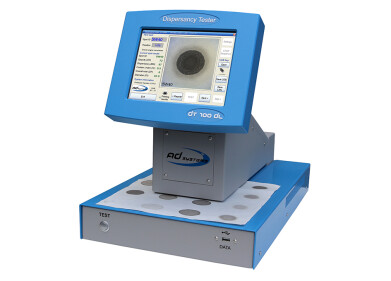Oil analysis
How Long Does Oil Analysis Take?
Mar 05 2022
When it comes to oil analysis, fast turnaround times are a top priority. Issues such as water contamination and particle debris can jeopardise efficiency and increase the risk of unplanned downtime, making speed a critical factor.
Want to know more? Below, we explore several oil analysis timeline examples in more detail.
CAREMAX™ Onboard Test Kits
Castrol is one of the largest providers of fuel to the maritime industry, with ports located around the world. The company’s portable test kits offer mechanics and engineers the scope to analyse lubricating oils onboard ships in a matter of minutes.
Developed in conjunction with chemists, maritime engineers and engine mechanics, the kits complement the routine oil analysis service offered by Castrol. Properties analysed include viscosity, water content, salt content and base number. Results are used to monitor the health of maritime engines and components, schedule maintenance and ultimately, minimise the risk of mechanical failure.
Shell LubeAnalyst Test Kits
Developed by industry experts, Shell LubeAnalyst test kits are used to unlock mechanical health insights across a wide range of industries and applications. With more than 100 different tests available, operators can tailor testing accordingly. For example, some test kits are suitable for detecting mechanical wear in heavy-duty equipment used at mining and drilling sites. Others are used to monitor cleanliness and detect contaminants in lubricants used in industrial fleets.
Laboratory testing
While some tests can be carried out onsite and offer almost instant results, others must be sent to laboratories for analysis. For example, elemental analysis usually requires specialised instruments capable of detecting traces of aluminium, calcium, copper, chlorine, magnesium and lithium and quantifying them in in parts per million (ppm). Titration tests, which quantify analytes by adding a reagent of known volume and concentration until a reaction occurs, is another test that’s generally carried out in specialised laboratories.
For routine testing used as part of a predictive or preventative maintenance strategy, a turnaround time of between 24 to 48 hours is ideal. Anything slower can decrease the relevance of results and increase the risk of mechanical failure. Ideally, samples should be dispatched using an express courier to fast-track analysis.
Intertek is one of the most trusted oil analysis providers in the industry, with testing laboratories located around the world. The company is an expert in crude oil quality testing for the oil and gas industry and employs a dedicated team of chemists to test samples obtained from pipelines, storage tanks, reservoirs, refineries, drill sites and petroleum cargo tankers.
Want to know more about the complex field of fuel testing in the maritime sector? Author Igor Borissov on behalf of AD Systems introduces the latest state-of-the-art methods in ‘Marine fuels compatibility testing by automated instrumentation according to ASTM D4740.’
Digital Edition
PIN 26.1 Feb/Mar 2025
March 2025
Analytical Instrumentation - Elemental Analysis for Quality and Process Control at Refineries, for Lubricants and Wear Metals in Engine Oils - Synthetic Lubricants: New Developments - Scaling...
View all digital editions
Events
Apr 08 2025 Birmingham, UK
Apr 08 2025 Kielce, Poland
Apr 08 2025 Ravenna, Italy
Apr 08 2025 Southampton, UK
Apr 08 2025 London, UK

.jpg)

















